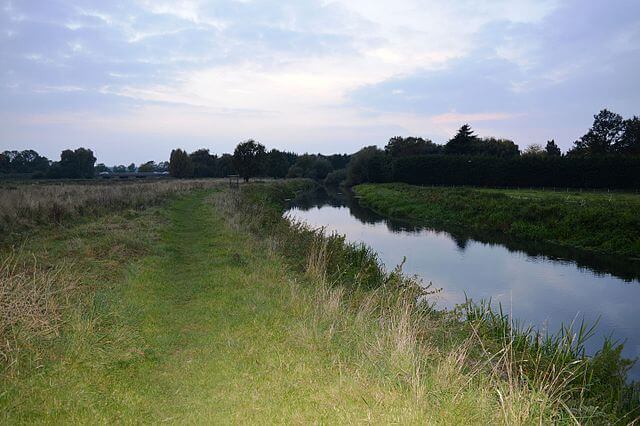
In England, concerning levels of bee-killing pesticides have been discovered in rivers, raising alarm among environmental groups and farmers. The government is currently contemplating the approval of a toxic neonicotinoid, thiamethoxam, for use on English sugar beet farms for the fourth consecutive year. Wildlife advocates deem it “unacceptable” that ministers have seemingly disregarded scientific evidence, permitting the use of these hazardous chemicals.
This issue was deliberated at a recent meeting of the government’s expert committee on pesticides in mid-September. While the EU has banned this pesticide for several years, it was temporarily allowed for emergency use until this year when it was entirely banned. Now that the UK has exited the EU, it has gained the authority to establish its own regulations regarding pesticides. Recent research has identified 36 pesticides banned by the EU that remain open for use in the UK.
Neonicotinoids are detrimental to bees, but they also pose a threat to aquatic life when present at specific levels, leading to their accumulation in river systems.
New research conducted by the Rivers Trust and Wildlife and Countryside Link (WCL) has unveiled alarming findings. The study indicates that one or more of five neonicotinoids, including four banned in the EU, were detected in over one in ten English river sites tested by the Environment Agency (29 out of 283 sites). At 55% of these 29 sites, one or more neonicotinoids exceeded the EU’s proposed environmental quality standard (EQS), the level considered safe for aquatic wildlife. Shockingly, 21% of the sites recorded one or more toxic pesticides at levels more than four times the safe threshold.
Rivers in the east of England, south-east England, and the West Midlands were the most severely impacted by these pesticides. Affected rivers included the Ivel, Waveney, Nene, Ouse, and Tame.
Barnaby Coupe, the land use policy manager at the Wildlife Trusts, said: “This research reveals that our rivers and waterways are plagued by a cocktail of neonicotinoid pesticides, despite these chemicals being banned since 2018.
“It is completely unacceptable that the government is allowing these chemicals to pollute the environment when the evidence for the disastrous impact of neonicotinoids grows year on year. It has ignored the science and the advice of its own experts in granting repeat authorisations to apply toxic neonicotinoids to our countryside, and the result is much diminished wildlife.”
Gareth Morgan, the head of farming at the Soil Association, said: “Year after year this failure to help farmers has led to the suspension of the so-called ban on these bee-harming pesticides. With so much of British wildlife in decline, it is critical that the government stops kicking the can down the road on this issue. Organic and agro-ecological farmers are proving that food can be produced without pesticides. Government must act now to help all farmers switch to nature-friendly practices across their entire farms. We must stop simply reaching for another toxic solution.”
A spokesperson for the Department for Environment, Food and Rural Affairs said: “Our comprehensive plan for water is tackling every source of pollution through more investment, stronger regulation and tougher enforcement, while ensuring the use of pesticides does not harm people or pose unacceptable risks to our rivers.
“In our forthcoming pesticides action plan we will also set out our ambition to minimise the risks and impacts of pesticides through an increased uptake of integrated pest management across all sectors. More widely, we have more than doubled the funding to help farmers to improve slurry management, while also expanding our sustainable farming incentive offer to pay farmers to reduce their use of insecticides.”
——————————————————————————
At Natural World Fund, we are passionate about stopping the decline in our wildlife.
The decline in our wildlife is shocking and frightening. Without much more support, many of the animals we know and love will continue in their decline towards extinction.
When you help to restore a patch of degraded land through rewilding to forests, meadows, or wetlands, you have a massive impact on the biodiversity at a local level. You give animals a home and food that they otherwise would not have had, and it has a positive snowball effect on the food chain.
We are convinced that this is much better for the UK than growing lots of fast-growing coniferous trees, solely to remove carbon, that don’t actually help our animals to thrive.
This is why we stand for restoring nature in the UK through responsible rewilding. For us, it is the right thing to do. Let’s do what’s right for nature!
Donate today at https://naturalworldfund.com/ and join in the solution!

